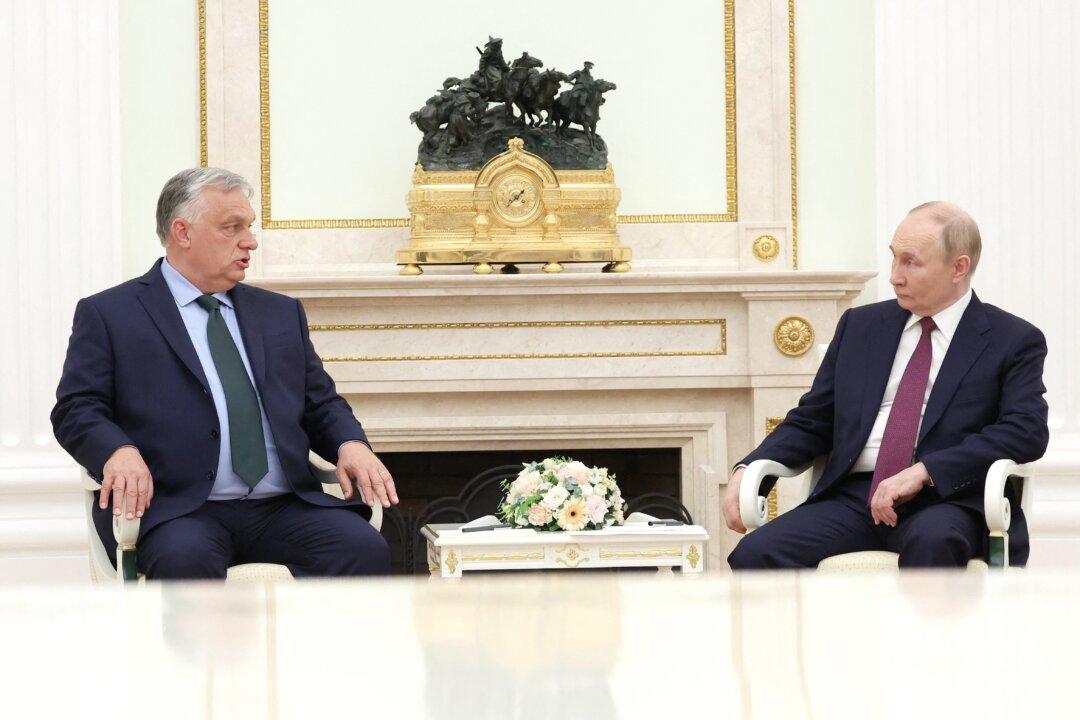Nationalist-minded Hungarian Prime Minister Viktor Orban has received a dressing down from the European Parliament for visiting Moscow earlier this month, where he met with Russian President Vladimir Putin.
On July 17, the Strasbourg-based parliament passed a resolution condemning Mr. Orban’s trip to Russia, which, it said, “does not represent the European Union and is a blatant violation of the EU’s treaties and common foreign policy.”





